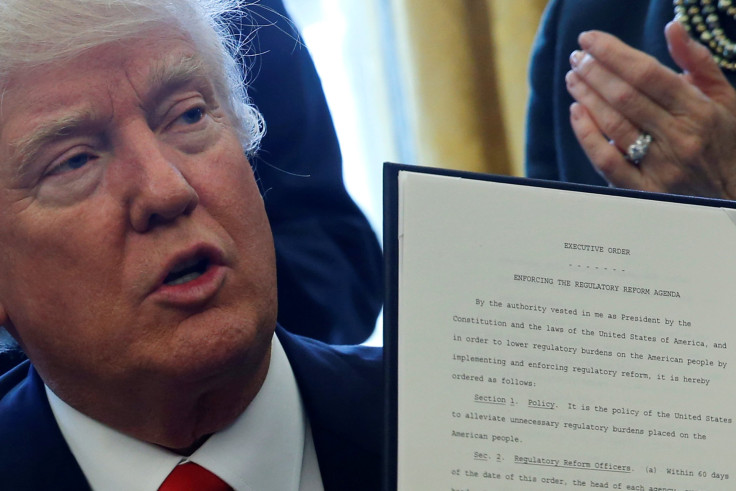Should The President Have More Power? Here's What Democrats And Republicans Think

Americans are leery of giving the president more power to deal directly with the nation’s problems — and it’s an issue on which both Democrats and Republicans agree, a poll released Thursday by the Pew Research Center indicated.
Seventy-seven percent of the 1,503 adults polled Feb. 7-12 said it would be “too risky to give U.S. presidents more power to deal directly with many of the country’s problems” while 17 percent said problems “could be dealt with more effectively if presidents didn’t have to worry so much about Congress or the courts.”
Broken down by political affiliation, 87 percent of Democrats and Democratic-leaning independents said concentrating more power in the presidency would be too risky compared to 65 percent of Republicans and Republican-leaning independents.
The U.S. Constitution makes all three branches of government co-equal, a system of checks and balances to ensure no president becomes a dictator. In recent years, however, presidents have relied more and more on executive orders, a practice often criticized by the opposing party. The only area not subjected to such checks is the conduct of foreign policy with the exception of declaring war, a prerogative reserved for the Congress.
But presidential efforts to seize some of that power has grown in recent decades, issuing executive orders instead of waiting for Congress to act.
President Donald Trump already has issued 15 executive orders, the most controversial of which attempted to deal with what he perceives as a threat to Americans’ safety. The order banned travelers from seven Muslim-majority countries and was incensed when first a federal judge and then an appellate panel suspended it.
Several of the executive orders issued by former President Barack Obama, some of them the result of frustration with congressional inaction on immigration and other issues, also were struck down by the courts. Obama issued 277 executive orders, averaging 35 a year, fewer than predecessors George W. Bush, Bill Clinton and Ronald Reagan. George H.W. Bush issued fewer but that’s only because he served just one term.
Both Obama and Bush expanded the 2001 Authorization for the Use of Military Force to justify unilateral decisions on getting involved in military conflict. They also oversaw the expansion of domestic surveillance programs, which eventually were limited by the courts and Congress.
© Copyright IBTimes 2024. All rights reserved.












